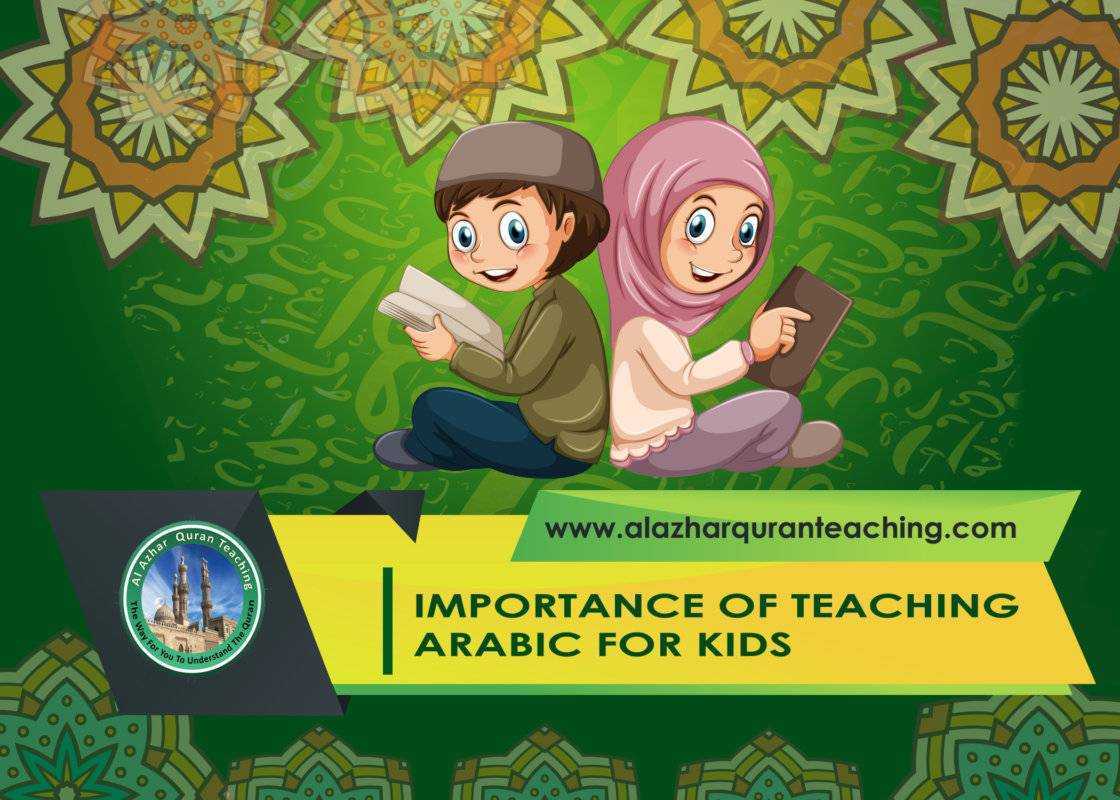Importance of teaching Arabic for kids
Importance of teaching Arabic for kids Allah has commanded Muslims to understand and reflect upon the Holy Quran. How can a Muslim ponder on the Holy Quran unless he understands the meaning of the verses of it, and for this understanding, it is indispensable for him to learn the Arabic language?
As Muslim parents, one of our major concerns is that our kids learn Arabic in order to be able to read the Quran. When you’re homeschooling or your child attends a secular school, well, let’s just say this concern tends to become a little bit more amplified which may just end up turning into a bit of an anxiety disorder. Yes, there is an undocumented mental illness that plagues Muslim parents; we can call it the how-will-my-kid-learn-Arabic syndrome. This can get worse if you are not a native speaker! Thankfully, there is a cure!
It is better for children to learn a second language when they are teenagers, in reality, they will never reach the same level of proficiency as a student who starts learning Arabic at a younger age.
Why Is Arabic for Children So Important?
Arabic is one of the Semitic languages that are thousands of years old, is known as the one and only language of the Quran and the official language of Islamic countries.
Nevertheless, the sphere of influence enjoyed by this language is actually much larger. The civilization of Islam has crossed every border and has become part of every culture on the planet.
1. The Arabic Language Is the Language of the Quran and Islam
The Quran confirms the Arabic language as the only official language of Islam, so Arabic was chosen by Allah, and the Muslim holy scripture is written entirely in Arabic.
Therefore, every Muslim must learn to read and speak Arabic, to be able to understand and interpret the word of Allah through prayer and reading the Quran. Moreover, learning the Quran Is a Pillar of Islamic Culture. The holy book contains some difficult-to-pronounce verses, which make Interpreting the Quran has become a veritable science. Muslim thinkers and scholars are seeking a critical translation and interpretation of the Quran.
The greatest challenge for a practising Muslim is reading the Quran. The Holy Scripture is complex as some Muslims think, they find it difficult to recite and comprehend because they did not learn Arabic well!
In that matter, courses in Quranic Arabic and reading the Quran are required if believers wish to learn the rules of tajweed.
2. Arabic Is an Influential Language Throughout the World
The Arabic language is tied fundamentally to the Quran and the Quran is the foundation for the study of the Arabic language. This makes the intrinsic and inseparable connection between Islam and the Arabic language. It is for this reason that no person can ever study the Arabic language without being exposed to the message and teachings of the Quran.
To help your children learn Arabic you have several options:
- Arabic classes at school: It is depending on where you live, there might be a school offering free Arabic lessons to children. There might be scholarships or other options. Explore your town!
- Arabic courses Online: It is also possible to take private Arabic lessons online, with a webcam. Parents can assist with the lessons and follow their children’s progress. That enables parents to find a native Arabic speaker easily.
- Private Arabic lessons for children: In this scenario, the teacher comes to the child home to teach him. Parents could choose specific focus areas and find teachers who specialize in young children, those who know just how to keep children engaged.
At the same time, parents can simplify supplementary activities for their children between private lessons, to make the most of their increasing knowledge of the Arabic language.
From an early age, it is important to speak to the baby in Arabic so that he or she will start to recognize the signs and patterns, slowly making the language his or her own little by little.
Here are some tips to help in teaching the Arabic language to the child more easily.
1- Talk to them early…very early!
It is said that the fetus begins to hear the sounds, the intonations and the voice of his parents from the 5th month of pregnancy! Babies start learning Arabic sooner than anyone thought. Do not hesitate to talk to him and to recite some verses of the Quran to him even before birth. Of course, we must continue to speak to him in Arabic from his earliest days and this is a very important point because your child associates your image with a number of criteria including the language, so it is discouraged to start speaking with him in another language thinking it is too early to talk to him in Arabic.
2- It is difficult at the beginning. Persist!
Teaching Arabic to a child is a long and tough mission that requires a lot of patience, motivation and perseverance, you must be aware of this so you do not give up too early.
Be patient, teaching Arabic to a child might take time, but believe me, it is worth it!

